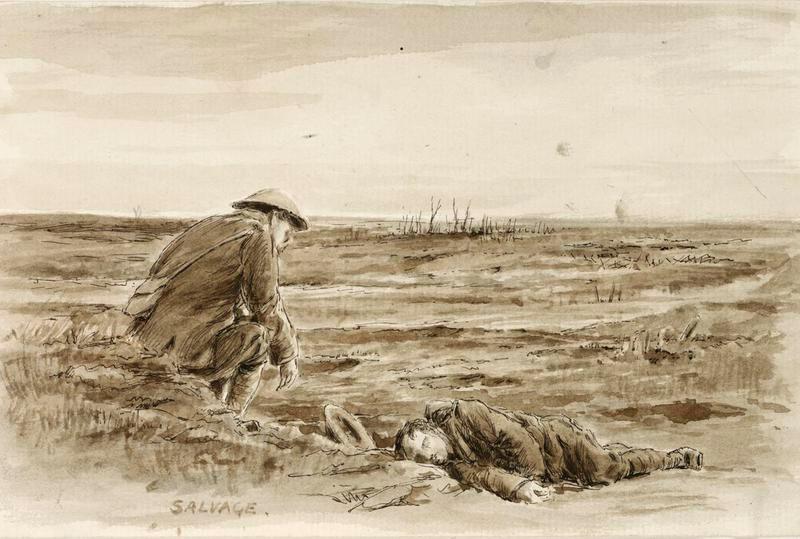Tasks: War Poetry

Study at least two war poems before you work on the tasks.
You will find several examples of war poems here on NDLA, but you are also free to find others on the internet.
War poetry on NDLA:
'The Charge of the Light Brigade' by Lord Alfred Tennyson
'Dulce et Decorum Est' by Wilfred Owen
'There Will Come Soft Rains' by Sara Teasdale
'The Soldier' by Rupert Brooke
'In Flanders Fields' by John McCrae
Why do you think soldiers for so long have written poems describing the horrors of war?
Is it at all possible to convey the horrors of war through poetry? And how well can civilians understand what war really is about by reading war poetry?
Can war poetry written during the First World War still speak to us today?
You have been asked to read at least two poems. What do you think of the poems? Do they speak to you?
Choose two war poems. Write a text where you compare and contrast the two poems.
Ask yourself:
What images of war do the two poems convey?
What is the mood presented in the poems?
What is the poets' attitude towards war?
What is the message of the poems?
What literary devices are used to convey the message?
Which poem leaves you with the strongest impression? Why?
Work in groups.
Research the historic context of the poems you have read. Find out more about the wars described in the poems, making a fact list of the major events.
The poets presented below all wrote poetry describing their experiences as soldiers during World War 1. Some survived and would return to their native countries, others were killed on the battlefield.
Within your group, choose different poets. Study their lives and their work. Find one poem that stands out and try to understand what this poem is about.
Then present your findings to the rest of the group. Read the poems aloud.
Wilfred Owen
John McCrae
Siegfried Sassoon
Alan Seeger
Rupert Brooke
Robert Graves
In this podcast, they discuss two different poems from the First World War. Take notes as you listen to the audio recording. Then discuss the questions below.
Link to 'Poetry was never the same' on Poetry Foundation' website
What was unique about the poems written during the First World War? What made the war such a game changer when it came to poetic style?
According to the podcast, how did the poems evolve over the course of the war?
Listen to 'For the Fallen' by Laurence Binyon. What is this poem about? Point out central elements regarding the poem.
You can read the poem here: link to 'For the Fallen'Who was Isaac Rosenberg?
Listen to his poem 'Break of Day in the Trenches'. What is the argument Rosenberg is making in the poem? How is this poem different from the earlier World Word 1 poems?
You can read the poem here: link to 'Break of Day in the Trenches'
Relatert innhold
'In Flanders Fields' is one of the most moving poems from the First World War.